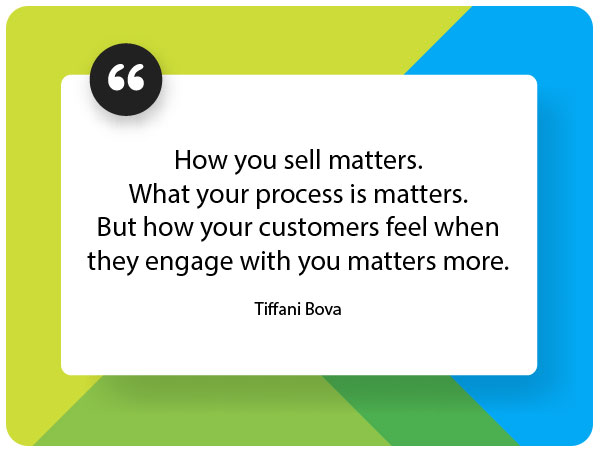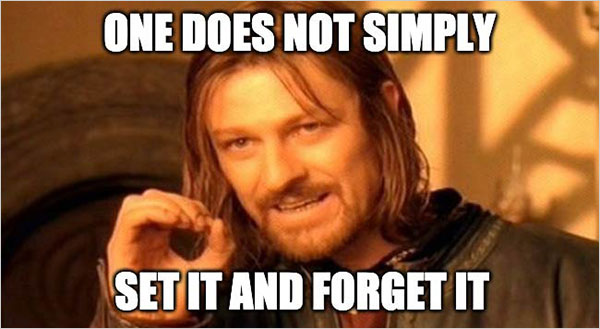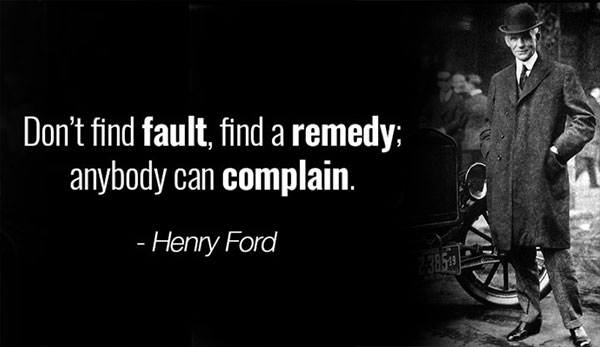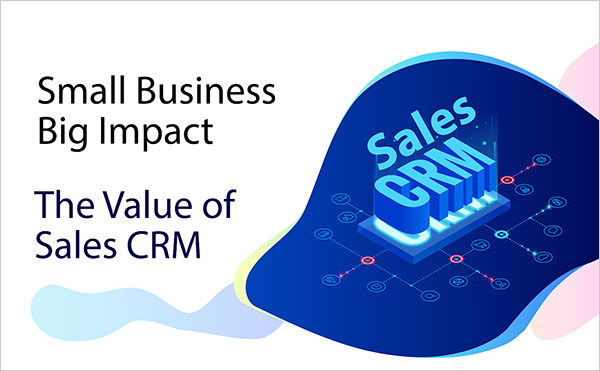Sales CRM: What is the best sales process?
Time and again, every organization in B2B sales faces the question of the best sales process they should use. Most of them actually set up their process only once. Some end up tweaking and configuring it every year or so. The answer to the best B2B sales process to use is rather simple. The best CRM Sales Process is the one that helps you convert more leads into opportunities (deals) or close more sales than you did before.
Obviously, there are thousands of sales processes out there and then the question becomes, ‘What is the best sales process for us?’
If you are doing research on this, you are looking to do one of the following:
- Setting up your sales machine
- Scaling your sales team and growth
- Generating net new revenue (new logos, new leads, etc.)

A note of caution.
In most organizations, sales processes are usually set up only once. The thinking is that they need something… a process... to organize their sales data. Once the sales process is setup (typically in a CRM software), sales teams using it to manage their activities on a day-to-day basis. Once they start using it, they get used to it and feel it is wrong or inconvenient to change it.
A sales process is not a “set it and forget it” situation. Seasoned sales leaders know that a sales process needs to be tweaked periodically to fit the sales strategies of the company. This tweaking and adjusting is also needed to reflect the sales methodology adopted by the organization.Just as a car needs regular maintenance based on the way the driver uses it, so too does the sales process to reflect sales expectations and usage. It is not uncommon to have a sales process reflect three or four different sales strategies that sales teams use to do their daily jobs.
What is things are working
 Another issue at heart is that just because things seem to be working doesn’t mean that they are working to their best. Reverting to our car example, a car that is used for commuting inside the city is not best suited for racing. Said differently, the sales process that one would use for getting the sales machine started is not the same that would be suitable for scaling revenues. If you want to keep your book of business and just grown organically, your sales process would look very different than if you want to generate hyper-growth or want to scale through partnerships.
Another issue at heart is that just because things seem to be working doesn’t mean that they are working to their best. Reverting to our car example, a car that is used for commuting inside the city is not best suited for racing. Said differently, the sales process that one would use for getting the sales machine started is not the same that would be suitable for scaling revenues. If you want to keep your book of business and just grown organically, your sales process would look very different than if you want to generate hyper-growth or want to scale through partnerships.
Beware of falling into the trap of using whatever sales process a CRM software comes packaged with. In more than 90% of the situations, that process would be too generic, too unfocused, too difficult to analyze and be meaningful for reps, managers and leaders. Here again is the irony that traditional CRMs do not allow sales leadership to tweak their process (and recalibrate all their data) when goals change and critical thinking suggests a change in approach. Only when the sales leadership team takes the extra step of configuring and tweaking the CRM system’s sales process a few times (in addition to the data cleansing and calibration needed) will it actually help sales organization reap its rewards.
Calibrating up a sales process
If the current sales process is not working, it is more important to find out why by looking at which objectives are not being met. This starts with analyzing existing sales data. Similarly, if you are setting up your sales process to create a sales machine or scale growth or to generate new leads, it is important to start with what you have i.e. the data.
The sales process is not just a set of ‘stages’ you set in your favorite CRM system. The sales process is a series of steps that your sales team would follow to take a prospect from the first contact all the way to a signed contract. Think about every single action that needs to be taken with a customer to keep them engaged, get them to reveal their pain points, talking about their right solutions, budgets, timing, their expectations of usage of your product or service after purchase, how they expect to be supported etc. All of this needs to be incorporated in a set of sales questions (ideally) and in a “call plan”. A call plan is a document that is a questionnaire to get to a specific objective by the end of that call. These might include who your target accounts are, what your key messages are to them, what you’d like them to do every time you engage them (demo/ info session/ discovery meeting/ strategic brainstorming/ invite to an event and so forth).
I, at RainmakerForce, recommend answering the following 5 questions to automatically help you conclude which best sales process you would need.
div class="thoughts">“A sales process is not a SET-IT-AND-FORGET-IT situation.”Identify what is broken
To identify what is broken, review the following questions with your team
-
Is sales too sluggish?
If you notice that there are plenty of deals but that they are not getting closed quickly enough, it is possible that reps are adding deals that are not well qualified. It is equally probable that there is inadequate follow-up with customers, or decision-makers are not part of the ‘pitch’ or that there is just one contact inside the customer’s organization who is being engaged. This contradicts buyer-behavior where it is well known that, on average, four or five contacts get involved before a B2B purchase is made. -
Is the team not closing what they said they will?
Compare the first forecast from the sales team and calculate if it is 25% more or less than the final forecast. If the sales team has to constantly update the forecast and you find that only the last forecast before month-end or quarter-end is reliable, you definitely have a sales process issue. Enough verification is not being done with customers before deals are entered into forecast. -
Are there not enough deals in the pipeline?
Question and examine whether prospecting efforts are generating results. Look at how many net-new deals are getting added to the pipe, which types of accounts they are, what kinds of products are being pitched, which deals are the ones resulting in quotes etc. Finding the pattern inside this data would quickly help you understand what needs to be changed and where things break. -
Are there not enough conversions?
See how many leads are getting converted to opportunities. If there are not enough leads being generated, the issue needs to be solved with the help of the marketing team. If there are enough leads but not enough deals (sales opportunities), this means that reps are not contacting prospects in the right manner to get them started in the buying ‘mindset’. Also see if you are closing fewer deals than there are quotes sent out to prospective customers, there is a problem in the middle or the bottom of the funnel. This means that reps are quick to send proposals or quotes out but have not taken enough time to vet the customers’ needs or understand their business situation correctly or even solve the exact problem that needs to be solved. -
What percentage of your sales team is hitting at least 70% of their quota?
If you see that less than half your team is hitting quota, you have a comp plan problem. In other words, you are setting quotas that you’d like the team to achieve but, in reality, there are other situations that are preventing them from doing so:- Reps don’t have enough continuous, regular, consistent training
- Sales is not being given the right tools that free them up to get more thinking time
- Collateral is not compelling with the right value points communicated
- Reps are being given generic collateral that they use for all customers
- The quota is just too high and impractical to achieve
- The comp plan is confusing or just not rewarding enough
Sales CRM Process - How can I get this right?
It is critical that sales process be an exact reflection of sales strategy. If you are at a place that requires guidance on sales strategy or an expert view on re-calibrating your sales strategy, it would be best to reach out to an industry expert. Please contact me at macks@rainmakerforce.com and we can help you find the best industry experts that do this kind of work.
Data is your friend. The best place to find data is in the marketing and sales activities you are already doing. The existing technologies you use in marketing and sales all have some data and that data is literally going to make or break your future. Use that data to find out how well does your sales team uses their existing CRM or if there is a conflict between marketing and sales expectations.
To get the sales process right, here is a checklist of things you need to put together:
- Your sales steps
- What you would like to measure - leads, quotes, closes, throughput, funnel size etc.
- What activities you would like your reps to do
- How customers will discover, learn, evaluate, compare and purchase your product/service
- How achievable are your sales targets (compared to how your reps are doing)
 Once you have these things in front of you, you can then easily create a set of sales stages in a CRM with the right kind of data capture and metrics that will drive success. It is of course imperative that you enforce this process with your sales team - you want to ensure that they are following it, and if they don’t, why that is happening. Use this feedback to inform you on things that are working or not working and then go ahead and make changes to your process till you get them right. This process might take anywhere from 1 to 3 months, depending upon the size of your existing organization, the volume of sales activity going on and how new your sales team is (on average).
Once you have these things in front of you, you can then easily create a set of sales stages in a CRM with the right kind of data capture and metrics that will drive success. It is of course imperative that you enforce this process with your sales team - you want to ensure that they are following it, and if they don’t, why that is happening. Use this feedback to inform you on things that are working or not working and then go ahead and make changes to your process till you get them right. This process might take anywhere from 1 to 3 months, depending upon the size of your existing organization, the volume of sales activity going on and how new your sales team is (on average).
Small Business Sales Process
If you are a small business, this sales process setup or re-calibration can be done in a shorter time frame. Admittedly, you are reading this blog and doing online research because you care about the results you generate. So, taking the time to get this right is a good thing. Sales execution and leadership are interconnected right inside the sales process and it will behoove you to also take an hour or two of your reps’ time NOW to get it right. Waiting till things settle down is a fool’s errand and will only exacerbate your current unpleasant situation.
 Within the context of a small business, the most important thing to have is a structured sales process. It is basically ensuring that you (and your reps) are following the steps in exact fashion as designed and doing so consistently, come rain or shine. A small business organization is a very different entity than a corporate organization. People know each other personally and they typically go above and beyond to help each other. This just means that your sales process needs to include the handoffs i.e. what information is one person sharing with the sales person and how that salesperson provides new information back to the first person. If your sales process can include capturing data and if you enforce the discipline to analyze this data on a monthly basis to tweak your process, your sales will start trending further and further upward.
Within the context of a small business, the most important thing to have is a structured sales process. It is basically ensuring that you (and your reps) are following the steps in exact fashion as designed and doing so consistently, come rain or shine. A small business organization is a very different entity than a corporate organization. People know each other personally and they typically go above and beyond to help each other. This just means that your sales process needs to include the handoffs i.e. what information is one person sharing with the sales person and how that salesperson provides new information back to the first person. If your sales process can include capturing data and if you enforce the discipline to analyze this data on a monthly basis to tweak your process, your sales will start trending further and further upward.
A small business needs a Sales CRM (absolutely!). So consider taking the time to research the one that best fits your business context. You must not hesitate going the extra mile to make sure the vendor (or service provider) think about sales in the same way that you do - are they data driven, are they methodology-oriented, are they insights-based, are they activity-centric and so on and so forth. Doing this exercise with your own thoughts and involving your trusted partners from your own company will make this a healthier and more productive investment. A Sales CRM is an investment, meaning you get what you put into it. Caution is to be made for Sales CRMs that are ‘free’. While they may give you a technology to use without any cost, they do not provide the support you need to make sure the system works for you and your team. There are plenty of CRMs to choose from and a few ‘Sales CRMs’ out there, so take heart that there are people who want to help. It only needs you to take the first step to reach out them!
About the author

Mack Sundaram
I love sales, learning it, doing it and practicing it every minute of every day. Prospecting drives me to come to work and makes me a better professional. Let’s make it rain together as a team. You can find me on LinkedIn.